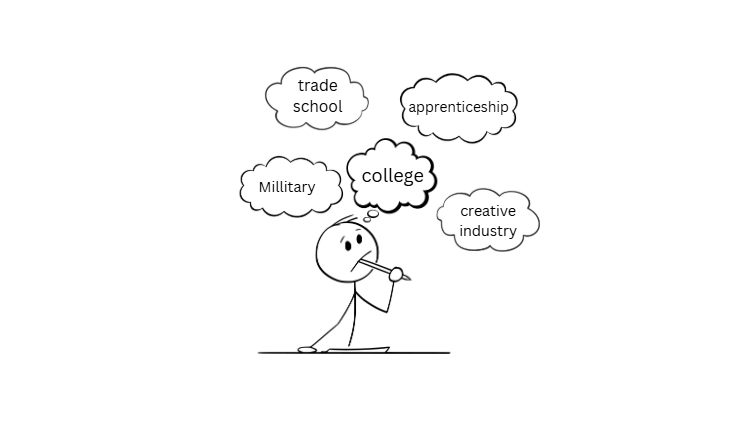High school guidance often centers around college prep. It is a good and very viable option for many, but It’s sold as a golden ticket to success without showing the complications beneath. College has long been treated as the default path to success, but people need to understand that there are many more paths they can take.
College can provide many benefits and set up an outstanding career for yourself, but it’s always seen as the next step when building a career, without nearly as much consideration for other steps you could take. This narrow mindset overlooks the value of trade schools, apprenticeships, and alternative routes that offer practical skills, financial stability, and are more often to give you less debt and more opportunity. College offers the opportunity to gain specialized knowledge, create connections, and open the doors to a wide range of career opportunities. However, college can be expensive, causing you to accumulate debt while also not even guaranteeing you a job afterwards. This is why alternative options are important; they present a structure that can guarantee success.
Alternate options such as trade schools can provide programs for training in skilled professions like plumbing, electrical work, welding, and HVAC. These programs typically last one to two years and lead directly to employment in jobs that are in high demand, meaning that you could find work relatively quick. They are also less expensive than college and offer a strong earning potential. Other alternatives like apprenticeships give the opportunity to learn while earning. They are common in fields like construction and manufacturing. Apprenticeships combine mentoring with practical experience that can lead to certifications, which can take you further towards a career.
This article isn’t meant to slander college, but rather to show that college alternatives are just as important. These alternatives create opportunities that many can thrive in without the need for college, while also being easier to achieve and more affordable. We need builders and workers, not just doctors and teachers.






